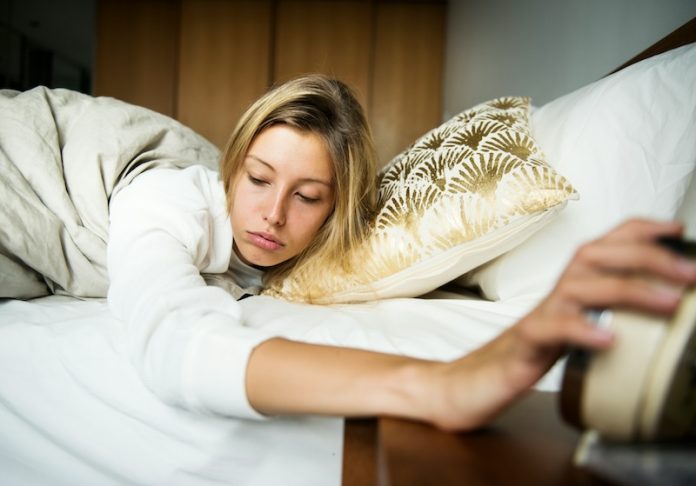
Struggling to fall asleep or stay asleep night after night can take a toll on your health and well-being.
Chronic insomnia, a condition where sleep problems last for months or even years, affects millions of people.
While medications can offer short-term relief, they often come with side effects and don’t address the root causes.
The good news is that there are natural treatments that research has shown to be effective for improving sleep without relying on drugs.
One of the most powerful natural approaches to treating insomnia is cognitive behavioral therapy for insomnia (CBT-I). This type of therapy helps people change the negative thoughts and behaviors that keep them from sleeping well.
Studies show that CBT-I can be just as effective as sleeping pills in the long term. It teaches strategies like keeping a regular sleep schedule, limiting time in bed to only when you’re sleeping, and managing stress around bedtime.
Many people who try CBT-I find that their sleep improves and stays better over time.
Relaxation techniques are another effective way to manage insomnia. Practices like deep breathing, progressive muscle relaxation, and mindfulness meditation can help calm a racing mind and prepare the body for sleep.
Research has found that mindfulness meditation, in particular, can significantly improve sleep quality by reducing stress and helping people let go of anxious thoughts that keep them awake. Apps, online videos, and guided audio programs make it easy to learn these techniques at home.
Lifestyle changes can also play a big role in treating insomnia. One important factor is your sleep environment. A cool, dark, and quiet bedroom helps signal to your body that it’s time to rest.
Many people find that blackout curtains, white noise machines, or earplugs make it easier to fall asleep and stay asleep. Avoiding screens—like phones, tablets, and TVs—before bed is another crucial step.
The blue light emitted by screens can disrupt the production of melatonin, a hormone that regulates sleep. Research suggests turning off screens at least an hour before bedtime can improve sleep quality.
What you eat and drink also affects your ability to sleep. Avoiding caffeine and alcohol in the hours before bed can make a big difference. While alcohol might make you feel drowsy at first, it can disrupt your sleep later in the night.
Caffeine, even in the afternoon, can stay in your system and keep you awake. On the other hand, certain foods and drinks can promote sleep. Chamomile tea, warm milk, and foods rich in magnesium, like bananas and almonds, are known to have calming effects that may help you relax.
Exercise is another natural remedy for chronic insomnia. Regular physical activity has been shown to improve sleep by helping the body release tension and regulate its natural sleep-wake cycle.
Aerobic exercise, like walking or swimming, is particularly effective, but even light stretching or yoga can help. The key is to avoid vigorous exercise close to bedtime, as it can temporarily increase alertness.
Herbal remedies and supplements are also popular among people looking for natural solutions. Melatonin supplements can be helpful for some individuals, especially for those whose sleep-wake cycle is disrupted by shift work or jet lag.
Valerian root is another herb that has been used for centuries to improve sleep, and some studies suggest it may be effective for mild insomnia.
However, it’s important to talk to a healthcare provider before starting any supplement, as they may not be safe for everyone or could interact with other medications.
Natural treatments for chronic insomnia don’t provide instant results, but with patience and consistency, they can lead to lasting improvements.
By addressing the underlying causes of sleep problems and creating a routine that supports healthy sleep, you can break free from the cycle of sleepless nights and groggy days.
These approaches not only help you sleep better but also improve your overall health and quality of life. Sleep is essential, and with the right strategies, it’s possible to reclaim it naturally.
If you care about sleep health, please read studies about foods that help people sleep better, and Keto diet could improve cognitive function in people with sleep loss.
For more health information, please see recent studies about the natural supplements for sound sleep, and how your diet can improve sleep quality.
Copyright © 2024 Knowridge Science Report. All rights reserved.



